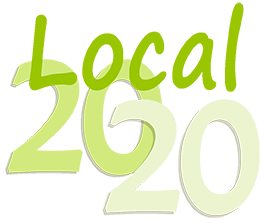Here is Local 20/20’s latest Resilience Review column in the Port Townsend Leader by Suzanne Jones and Judith Alexander.
Resiliency is a word that is increasingly on people’s minds. Over the last decade authors such as Charles Eisenstein, David Korten, and Margaret Wheatley have pointed to community resiliency as the best route to a stable future.
One element of resiliency that may not be obvious is communication. Effective and compassionate communication directly contributes to resiliency by facilitating our connections, not only with one another, but with ourselves! Communication skills that provide language that builds an inner connection with our feelings, and how those feelings reflect on our needs, give us access to inner guidance, which informs our abilities to connect with others. Such access to the language of feelings and needs empowers us to develop and practice compassion; first for ourselves, then for others. Compassion can lead to a genuine connection at a deeper level. Did you know that negative feelings often indicate we need something we do not have, and positive feelings reflect that our needs are being well met?
Communication is also of great practical importance. John Dewey, the renowned educator at the turn of the 20th Century, noted that societies are not formed because of proximity alone. Younger and less mature members of society must have the skills, the information, and the mores communicated to them by the more mature members. This transfer of practical skills contributes to the well-being of our community members. In more integrated cultures than ours, elders naturally play this role.
Opportunities to support our neighbors, to collaborate with one another on community projects, and to develop stronger, more confident citizens through intergenerational family and community ties all become the connecting threads that create strong community, and as a consequence of that, local resilience.
We all share a need to contribute on one level or another. The way we communicate with one another actually facilitates the well-being of others no matter their age, gender, or status. In his book Nonviolent Communication: A Language of Life, Marshall B. Rosenberg notes that, while people really enjoy contributing to one another’s well-being, they often do not know how. Learning the language that identifies feelings and needs builds the skills of connection. Just knowing that someone is really hearing what you are saying has a profound effect. People report feeling calmer, safer, and less alone when they believe someone has truly heard them.
Rosenberg made a further important point in his audio book Speaking Peace. It is difficult to create enemy images of others when we remain in close communication with them. Sharing what we are feeling and needing with one another builds the bridge of compassionate connection, a skill that is sorely needed in these times of such divisive polarization.
These are skills that can be learned. Even those who have such skills would do well to brush up on their practical use of them. That might be how you can best contribute to building the community resilience that our very future depends on!
Biographies:
Co-written by Suzanne Jones and Judith Alexander, both members of Local 20/20’s Council. Suzanne is an author, artist, and musician, co-leads the Local 20/20 Resiliency of Heart Action Group, and is facilitating free bi-monthly public workshops in compassionate communication and community building this spring and summer at QUUF. Judith Alexander, MSW, has had a local private counseling practice since 1983, sits on the Local Food System Council Action Group, and co-taught a class called Cultivating Empathy last summer. For more information, contact Suzanne at suzannej@ymail.com or Judith at lightenup@olympus.net








